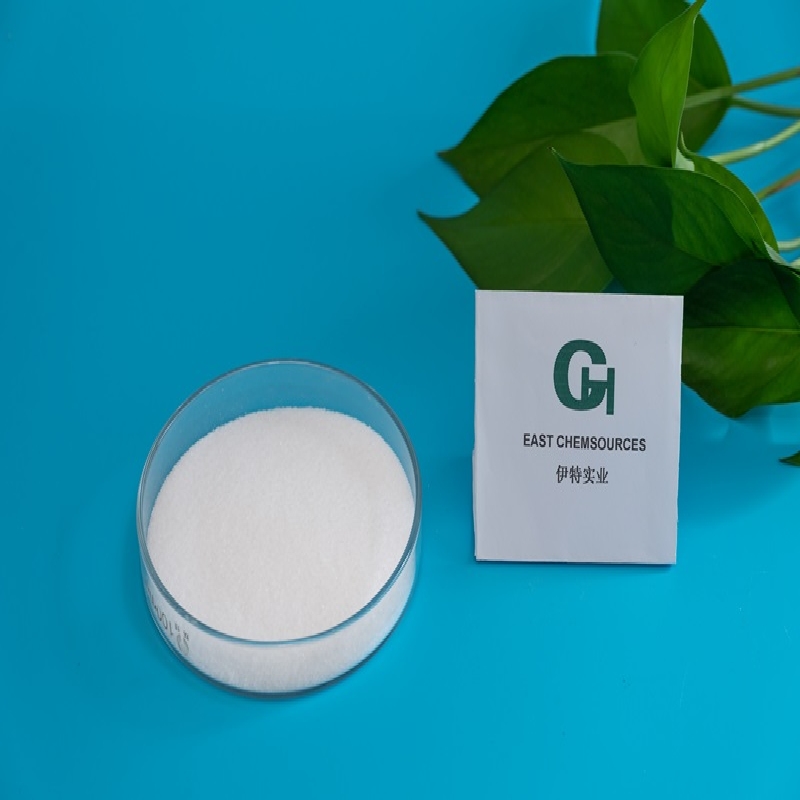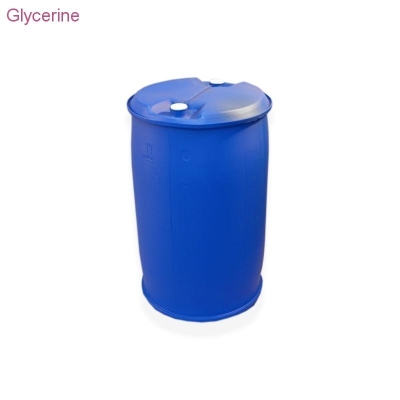-
Categories
-
Pharmaceutical Intermediates
-
Active Pharmaceutical Ingredients
-
Food Additives
- Industrial Coatings
- Agrochemicals
- Dyes and Pigments
- Surfactant
- Flavors and Fragrances
- Chemical Reagents
- Catalyst and Auxiliary
- Natural Products
- Inorganic Chemistry
-
Organic Chemistry
-
Biochemical Engineering
- Analytical Chemistry
- Cosmetic Ingredient
-
Pharmaceutical Intermediates
Promotion
ECHEMI Mall
Wholesale
Weekly Price
Exhibition
News
-
Trade Service
In August 2021, based on the results of the CheckMate-649 study, nivolumab (trade name: Opdivo®) became the first and currently only PD-1 inhibitor approved in China for the first-line treatment of advanced gastric cancer for the whole population indication
.
In view of the breakthrough progress of gastric cancer immunotherapy, the [Wei Lai Xianfeng] column specially invites experts from various fields to interpret the frontier literature and research of gastric cancer immunotherapy, and help improve the standardized application of immunotherapy in the clinical practice of gastric cancer in China
.
Gastric cancer has strong spatiotemporal heterogeneity and complex tumor microenvironment.
Finding the relationship between PD-L1 expression level and immunotherapy efficacy is a current hot topic
.
The third phase [Wei Lai Xian Feng] was honored to invite Professor Peng Zhi from Peking University Cancer Hospital, and asked him to deeply analyze the relationship between the expression of PD-L1 CPS in gastric cancer and the benefits of immunotherapy
.
Question 1: Your team published "Appropriate PD-L1 Cutoff Value for Gastric Cancer Immunotherapy: A Systematic Review and Meta-Analysis1" in Front Oncol 2021.
meta-analysis), could you please interpret the main background and content of the literature? Professor Peng Zhi used chemotherapy as the first-line standard treatment for advanced gastric cancer, but the median overall survival (OS) of patients was only about 1 year 2
.
In recent years, immunotherapy has greatly changed the treatment pattern of gastric cancer, and the search for molecular markers has become a research hotspot
.
PD-L1 expression is considered to be a biomarker for predicting the efficacy of immunotherapy for gastric cancer, however, how to select treatment strategies based on PD-L1 expression levels remains uncertain
.
This article aims to find an appropriate PD-L1 cutoff value for gastric cancer immunotherapy through a systematic review and meta-analysis
.
Here we present a systematic review and meta-analysis of prospective clinical trials of immunotherapy for gastric cancer across databases, including subgroup analyses stratified by PD-L1 expression
.
Finally, 12 prospective studies and 6,488 patients were included for pooled analysis, of which 6 were phase III RCT studies, and the objective response rate (ORR), disease control rate (DCR), no Hazard ratio (HR) and 95% confidence interval (CI) data for progression survival (PFS) and overall survival (OS)
.
Table 1: Baseline Characteristics of Included Studies From the results, the ORRs for the overall, PD-L1 negative, PD-L1 CPS ≥ 1, PD-L1 CPS ≥ 5, and PD-L1 CPS ≥ 10 populations were compared with immune monotherapy, respectively.
were 10%, 3%, 13%, 20% and 23%, and the ORR increased with increasing PD-L1 expression levels
.
Immune checkpoint inhibitor (ICI) monotherapy failed to show a survival advantage in the overall and PD-L1-negative population
.
ICI monotherapy prolonged OS in patients with PD L1 CPS ≥1 (HR = 0.
84, 95% CI: 0.
74–0.
96), but not PFS (HR = 1.
38, 95% CI: 0.
91–2.
09)
.
For immunocombination therapy, ORR was 64%, 57%, 48%, 60%, and 58 for overall, PD-L1 negative, PD-L1 CPS ≥1, PD-L1 CPS ≥5, and PD-L1 CPS ≥10, respectively %
.
According to the results of the CheckMate-649 study, all populations can experience a survival benefit from combination immunotherapy
.
Both OS (HR = 0.
81, 95% CI: 0.
71–0.
92) and PFS (HR = 0.
77, 95% CI: 0.
69–0.
86) were significantly prolonged in the PD-L1 CPS ≥1 population receiving immunocombination therapy (Figure 1 )
.
Figure 1: PD-L1 CPS ≥ 1: immune monotherapy (A) OS (B) PFS; immune combination therapy (C) OS (D) PFS Therefore, the efficacy and survival advantages of immunotherapy for gastric cancer vary with PD-L1 CPS expression level increases
.
CPS ≥1 is the critical value for the survival benefit of immune monotherapy, while immune combination therapy prolongs PFS and OS in all populations, and further studies are needed to confirm
.
Question 2: What do you think about the relationship between PD-L1 CPS expression and the benefit of immunotherapy for gastric cancer? Professor Peng Zhi's combined positive score (CPS) and tumor proportion score (TPS) can both be used for PD-L1 assessment
.
In gastric cancer, CPS has been shown to be a more sensitive prognostic biomarker than TPS and is therefore more widely used 3
.
However, PD-L1 CPS as a predictive biomarker for immunotherapy still has some challenges: 1) CPS is more difficult to interpret than TPS, and more pathologists may need to be trained for better interpretation; 2) Different companies use antibodies for testing There may be some differences in PD-L1 test results, although the difference is relatively consistent in most antibodies; 3) Gastric cancer The spatiotemporal heterogeneity may affect the expression of PD-L14,5, and it is more accurate to use the freshest specimens to detect PD-L1 expression in clinical practice
.
Our study also found that the correlation between PD-L1 expression and ORR was not obvious when immunocombination chemotherapy was performed, and the range of PFS and OS overlapped between different PD-L1 expression subgroups
.
It can be seen that pure PD-L1 expression is not the only factor that guides combined immunotherapy for gastric cancer
.
In addition, different types of immune checkpoint inhibitors may also have different effects on treatment outcomes, and the results of clinical trials of KEYNOTE-062 and CheckMate-649 in combination with immunotherapy for gastric cancer are inconsistent
.
The KEYNOTE-062 study reported negative results for first-line immunotherapy in the PD-L1 CPS ≥1 population (Figure 2) OS and PFS were not significantly improved
.
Figure 2: OS Results of KEYNOTE-062 Study However, the CheckMate-649 study confirmed positive results of Opdivo® (nivolumab) in combination with chemotherapy in first-line advanced gastric cancer compared with chemotherapy
.
The success of Opdivo® in combination with chemotherapy not only applies to patients with PD-L1 CPS ≥5, but also to all intent-to-treat (ITT) populations (Figure 3) 7
.
It can be seen that although PD-1 inhibitors target the same site, the results of different drugs in the treatment of gastric cancer are quite different, and the effects of different immunotherapy drugs are different.
Therefore, the selection of different PD-1 drugs should be based on the evidence of evidence-based medical research.
.
Figure 3: OS Results of the CheckMate-649 Study In conclusion, the PD-L1 CPS score is only one of the reference indicators for evaluating the efficacy of immunotherapy in patients
.
From a single drug perspective, the PD-L1 CPS indicator is very important, but from the perspective of combined immunotherapy, it is not comprehensive to predict the prognosis of patients from the PD-L1 expression level alone, and it also depends on in-depth research
.
Expert summary 1.
In immune monotherapy, PD-L1 CPS ≥ 1 is the critical value for survival benefit
.
In contrast, combined immunotherapy prolonged PFS and OS in all populations, and ORR was not affected by CPS expression
.
2.
It is not comprehensive to predict the prognosis of patients only from the expression level of PD-L1
.
3.
The CheckMate-649 study has fully confirmed that Opdivo® combined with chemotherapy can benefit the entire population of advanced first-line gastric cancer regardless of PD-L1 level
.
References: (swipe up and down to view) 1.
Xie T, Zhang Z, Zhang X, et al.
Appropriate PD-L1 Cutoff Value for Gastric Cancer Immunotherapy: A Systematic Review and Meta-Analysis[J].
Front.
Oncol.
11: 646355.
2.
Nakamura Y, Kawazoe A, Lordick F, et al.
Biomarker-targeted therapies for advanced- stage gastric and gastro-oesophageal junction cancers: An emerging paradigm[J].
Nat Rev Clin Oncol.
2021 Aug;18(8): 473-487.
3.
Yamashita K, Iwatsuki M, Harada K, et al.
Prognostic Impacts of the Combined Positive Score and the Tumor Proportion Score for Programmed Death Ligand-1 Expression by Double Immunohistochemical Staining in Patients With Advanced Gastric Cancer[J].
Gastric Cancer (2020) 23(1):95–104.
4.
McLaughlin, J, Han, G, Schalper, K.
A, et alQuantitative Assessment of the Heterogeneity of PD-L1 Expression in Non–Small-Cell Lung Cancer[J].
JAMA Oncology, 2(1), 46.
5.
Ji Hyun Yang,Hyunho Kim, Sang Young Roh ,et al.
Discordancy and changes in the pattern of programmed death ligand 1 expression before and after platinum-based chemotherapy in metastatic gastric cancer[J].
Gastric Cancer.
2019 Jan;22(1):147- 154.
6.
Kohei Shitara, Eric Van Cutsem, Yung-Jue Bang, et al.
Efficacy and Safety of Pembrolizumab or Pembrolizumab Plus Chemotherapy vs Chemotherapy Alone for Patients With First-line, Advanced Gastric Cancer: The KEYNOTE-062 Phase 3 Randomized Clinical Trial[ J].
JAMA Oncol.
2020 Oct 1;6(10):1571-1580.
7.
Yelena Y Janjigian, Kohei Shitara, Markus Moehler, et al.
Nivolumab plus chemotherapy versus chemotherapy as first-line treatment for advanced gastric cancer/gastroesophageal junction cancer /oesophageal adenocarcinoma (CheckMate 649): a multicentre, randomised, open-label, phase 3 trial[J].
Lancet.
2021 Jun 4:S0140-6736(21)00797-2.
Prof.
Dr.
Peng Zhi, Associate Chief Physician, Associate Professor Peking University Cancer Hospital Gastrointestinal Oncology Deputy Director of the Youth Committee of the Chinese Anti-Cancer Association Cancer Precision Therapy Committee Vice-chairman of the Association, Secretary-General of the Special Committee for Gastric Cancer Prevention, Beijing Cancer Society Member of the Youth Committee of the Credit Association Member of the Chemotherapy and Immunity Committee of the Interventional Branch of the Chinese Anti-Cancer Association Member of the Editorial Board of "Electronic Journal of Comprehensive Cancer Treatment" Editor: Dreams Typesetting: Quinta, Uni Executive: Uni Master Classroom, scan the code to enter▼▼▼







